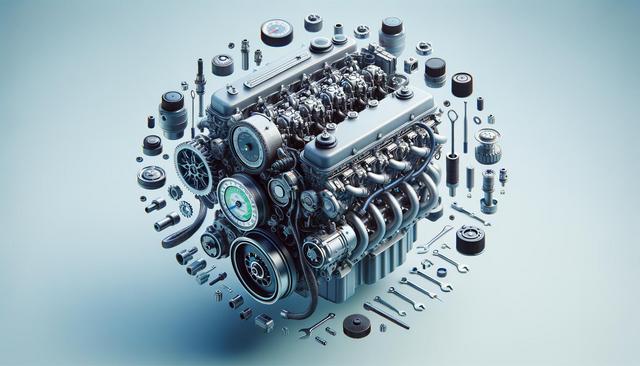Understanding the Value of Low Mileage Used Engines
Low mileage used engines are often seen as a practical alternative to brand-new or remanufactured engines. These engines typically come from vehicles that have been retired early due to accidents or other non-engine-related issues, which means the engine itself has not undergone significant wear and tear. By opting for a low mileage engine, vehicle owners can benefit from reliable performance while saving a substantial amount of money. These engines are commonly tested and inspected before being sold, ensuring they meet certain quality standards.
One of the key advantages of low mileage engines is their ability to function almost like new, depending on their maintenance history and the conditions under which they were used. In many cases, these engines come from newer vehicle models, making them more compatible with modern engine management systems. This compatibility can lead to smoother installation and improved vehicle performance.
Cost Benefits Compared to New Replacement Engines
One of the most compelling reasons to consider a low mileage used engine is the cost savings. New engines can be prohibitively expensive, especially for older vehicles that may not justify the investment of a brand-new powertrain. Used engines offer a balance between affordability and reliability, making them a preferred option for vehicle owners on a budget.
Here are some of the financial advantages:
- Lower upfront cost compared to new or remanufactured engines
- Reduced labor costs due to easier installation in many cases
- Potential to avoid additional upgrades often required with new engines
By investing in a low mileage used engine, vehicle owners can keep their transportation costs manageable while ensuring their vehicle remains operational for years to come. This is especially important for those who rely on their vehicle for daily commuting or work-related travel.
Performance and Longevity Expectations
While the term “used” might raise concerns about longevity, low mileage is a key indicator of an engine’s remaining lifespan. Engines with fewer miles generally have less internal wear, which translates to better performance and longer service life. When properly maintained, many low mileage engines can run smoothly for tens of thousands of additional miles.
To maximize the benefits of a low mileage engine:
- Ensure the engine comes with a verified mileage report
- Check for a warranty or return policy from the seller
- Inspect for signs of proper maintenance, such as clean oil and intact gaskets
These steps help ensure that you’re not only getting a good deal but also investing in an engine that will serve your needs for the long term.
Where to Find Reliable Low Mileage Used Engines
Finding a dependable low mileage engine involves research and selecting trustworthy suppliers. Specialized salvage yards, online marketplaces, and certified auto parts dealers are common sources. Some suppliers offer detailed engine histories, including maintenance records and vehicle origin, which can help buyers make informed decisions.
When searching for a used engine, consider the following:
- Reputation of the seller, including customer reviews and ratings
- Availability of documentation verifying mileage and engine condition
- Return policies and warranty coverage
Working with a reputable source can make a significant difference in your overall experience, ensuring that the engine you receive is in good condition and suitable for your vehicle’s requirements.
Things to Consider Before Purchasing
Before finalizing a purchase, it’s important to evaluate more than just the mileage. Compatibility with your vehicle’s make and model, the condition of ancillary components (such as the alternator or turbo), and even the engine’s origin all play a role in determining its value. Some low mileage engines may have sat unused for extended periods, which can lead to issues like dried-out seals or internal corrosion.
Key considerations include:
- Verifying the engine’s fit with your vehicle’s specifications
- Assessing the condition of all included parts
- Understanding the return and warranty conditions
Consulting with a trusted mechanic before making a decision can also help you avoid costly mistakes and ensure a smooth installation process.







